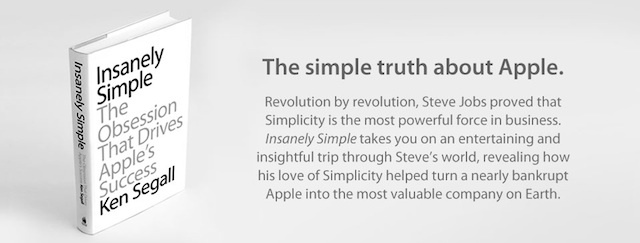I recently read a book by the guy who was in charge of the advertising account for Apple. His book is called Insanely Simple: The Obsession That Drives Apple’s Success Paperback by Ken Segall. Ken spent a lot of time with Steve Jobs because Steve was so particular about messaging. For Steve Jobs how his products were marketed and packaged mattered almost as much as how well they functioned. One of the things that Ken says in his book was this:
“It drove Steve batty to see on 20 slides what could be spoken in three sentences.”
Do we spend a lot of time with the wrapping of an idea or do we spend more time around the idea itself. One of the greatest tools you can have as a leader is the ability to clarify through simplicity. This is especially true of people who work with kids. We need to spend more time understanding and knowing what we are talking about so we can explain it to our kids in clear simple terms. We often times spend more time with the wrapping of the idea rather than the idea itself.
Here are 4 simple things you can do to lead more simply.
1. Clarify the goal – What do you want the outcome to be of a given meeting, bible story, lesson or activity. Once you know what you want to accomplish you can remove the unessential so that the things that really matter shine through.
2. Pick your words well – Simplicity happens on purpose complexity happens on accident. The more acute your word choice is the more memorable your message will be.
3. Really know what you are talking about. – Simplicity is lots of work. The mistake many people make is just take things away. While this is true to some extent if you don’t really understand what you are doing or what you are talking about it can lead to you removing something that is essential. Simplicity is the removal of the unessential and until you fully understand what you are talking about you will be unable to do this.
4. Be ruthless – Many people embrace complexity because of sentimental reasons. We hold on to things we need to let go of because of good memories, how it worked in the past and we unintentionally cling to ideas, programs and issues at times that create layers of complexity and keep our message from being heard because we are not ruthless enough to cut whatever so the essential can be heard.

